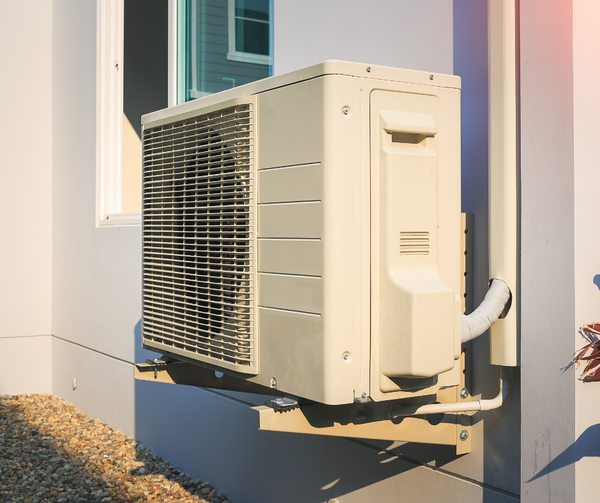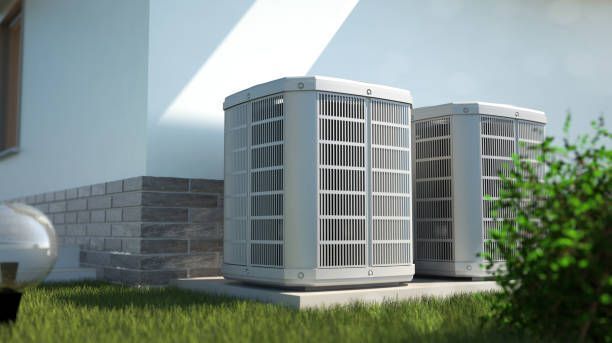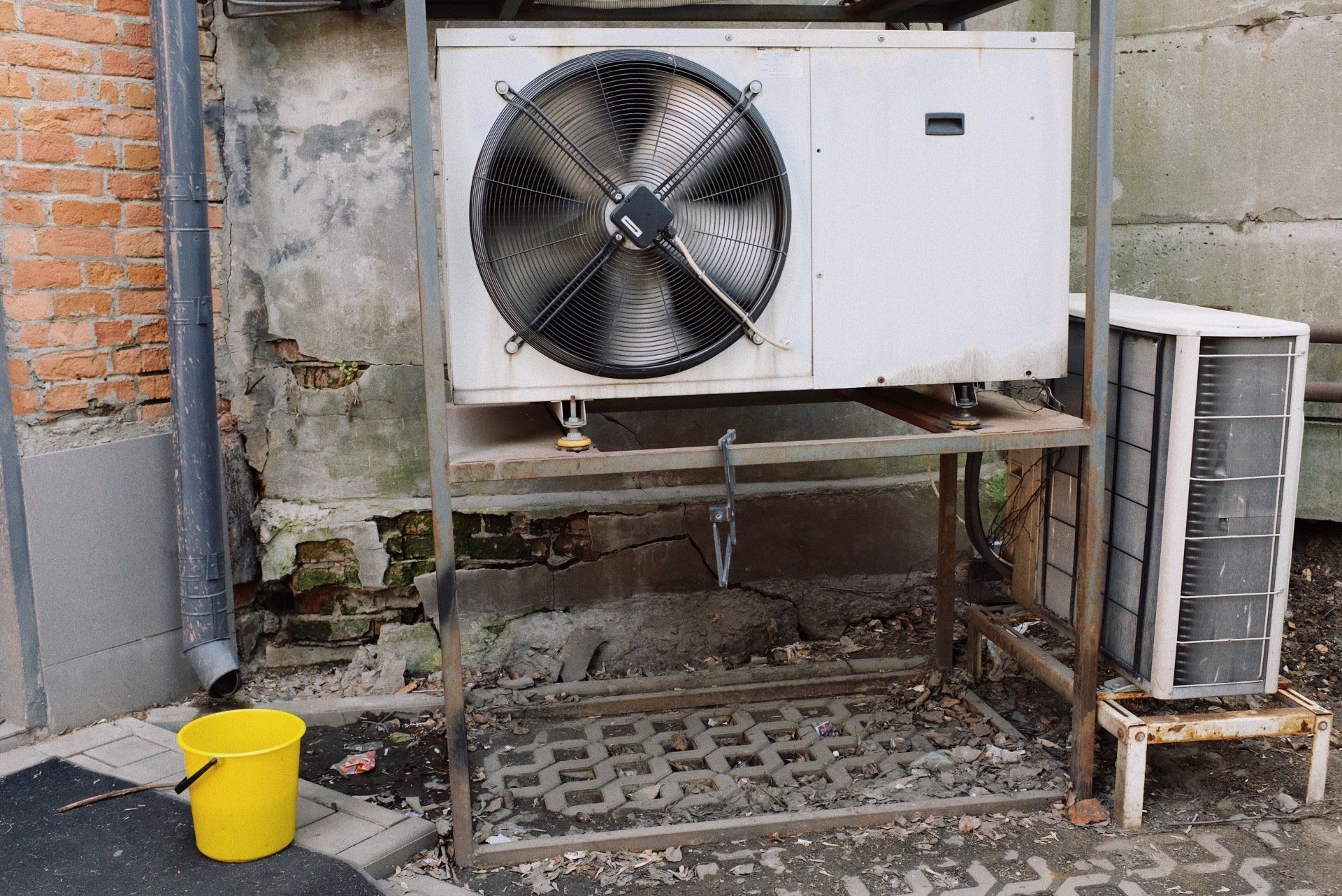Blog

As a leading HVAC company, we understand the vital role HVAC systems play in providing comfortable indoor environments. In this article, we will delve into the world of HVAC systems, exploring their components, benefits, and how they can transform your living or working spaces into havens of comfort and productivity. Comprehensive Climate Control HVAC systems offer comprehensive climate control, ensuring comfort all year round. During the scorching summer months, the air conditioning component efficiently cools the air, maintaining an ideal temperature indoors. In colder seasons, the heating component keeps you warm and cozy. With the capability to regulate temperature, humidity, and airflow, HVAC systems create optimal conditions, promoting productivity, relaxation, and overall well-being. Energy Efficiency and Cost Savings Modern HVAC systems prioritize energy efficiency, reducing both your carbon footprint and utility bills. Advanced technologies, such as variable-speed motors and programmable thermostats, allow for precise control over energy consumption. Zoning systems enable temperature customization for different areas of your home or office, preventing energy waste. When properly maintained, HVAC systems operate efficiently, reducing strain on the system and extending its lifespan. By investing in an energy-efficient HVAC system, you not only contribute to a greener planet but also enjoy significant long-term cost savings. Improved Indoor Air Quality Indoor air quality has a direct impact on your health and well-being. HVAC systems play a vital role in enhancing air quality by filtering out dust, allergens, and pollutants. Quality air filters and regular maintenance prevent the accumulation of harmful particles, ensuring that you breathe clean and fresh air. Additionally, some HVAC systems include features like UV lights or air purifiers to eliminate bacteria and viruses, further enhancing indoor air quality. By investing in an HVAC system, you prioritize the health and comfort of your family, employees, or customers. Smart Technology Integration The advent of smart technology has revolutionized HVAC systems, providing increased convenience and control. Smart thermostats allow you to regulate your system remotely through your smartphone or voice commands, ensuring comfort even when you're away. These devices learn your preferences and adjust settings accordingly, optimizing energy usage. Some systems even provide real-time energy consumption data, helping you make informed decisions about your energy usage. With the integration of smart technology, HVAC systems offer enhanced convenience, energy efficiency, and customization options tailored to your specific needs. In conclusion, HVAC systems are essential for creating comfortable and healthy indoor environments. With their comprehensive climate control capabilities, energy efficiency, improved air quality, and integration of smart technology, HVAC systems have become indispensable in homes and businesses. Contact our HVAC experts today to discuss how we can design and install the perfect system for your unique requirements.

As an HVAC technician, I have witnessed firsthand the impact of neglected maintenance on HVAC systems. In this blog post, I aim to shed light on the crucial importance of regular maintenance for HVAC systems. By understanding the benefits and consequences of neglecting maintenance, you can ensure the longevity, efficiency, and reliability of your HVAC system. Ensuring Optimal Performance Regular maintenance is the key to ensuring that your HVAC system operates at its peak performance. During maintenance visits, technicians inspect and clean various components, including filters, coils, fans, and motors. This thorough examination allows for the detection and resolution of potential issues before they escalate, maximizing the system's efficiency and preventing unexpected breakdowns. Enhancing Energy Efficiency HVAC systems account for a significant portion of a building's energy consumption. Neglected systems tend to accumulate dirt, debris, and dust, which can impede airflow and strain the system, resulting in increased energy consumption. Through maintenance, technicians clean and optimize the system, reducing energy waste and improving overall efficiency. Regular maintenance can lead to substantial energy savings and lower utility bills, contributing to a more sustainable and cost-effective operation. Prolonging System Lifespan An HVAC system is a significant investment, and it is in your best interest to maximize its lifespan. Neglected systems are prone to premature wear and tear, leading to expensive repairs or even complete system replacements. Routine maintenance, such as lubricating moving parts, tightening electrical connections, and inspecting refrigerant levels, ensures that the system operates smoothly and prolongs its lifespan. By taking proactive measures to maintain your HVAC system, you can avoid the hassle and expense of premature replacements. Improving Indoor Air Quality Indoor air quality significantly impacts the health and well-being of occupants. HVAC systems play a crucial role in maintaining clean and healthy air by filtering out pollutants and allergens. Neglected systems can become breeding grounds for mold, bacteria, and other contaminants, compromising indoor air quality. Regular maintenance includes cleaning or replacing filters, inspecting ductwork for leaks, and addressing any ventilation issues. By prioritizing maintenance, you can enjoy improved indoor air quality, reducing the risk of respiratory problems and allergies among occupants. Ensuring Safety Safety should always be a top priority when it comes to HVAC systems. Neglected systems can pose safety risks such as gas leaks, electrical hazards, or carbon monoxide poisoning. During maintenance, technicians conduct safety checks, test gas connections, and inspect electrical components to identify and mitigate potential hazards, providing peace of mind for occupants. As an HVAC technician, I cannot stress enough the importance of regular maintenance for HVAC systems. By investing in routine maintenance, you ensure optimal performance, enhance energy efficiency, prolong system lifespan, improve indoor air quality, and prioritize safety. Partner with a trusted HVAC professional to create a maintenance plan that meets your system's needs, ensuring years of reliable and efficient operation.

HVAC (Heating, Ventilation, and Air Conditioning) systems have become an integral part of our daily lives, providing comfortable indoor environments throughout the year. In this blog post, we will explore the importance of HVAC systems, their components, and the benefits they offer in terms of comfort, energy efficiency, and air quality. The Role of HVAC Systems HVAC systems play a crucial role in maintaining optimal temperature, humidity levels, and air quality indoors. They provide heating during chilly winters, cooling during scorching summers, and regulate air circulation and filtration. HVAC systems ensure comfort and well-being by creating a pleasant environment that promotes productivity and overall health. Components of HVAC Systems HVAC systems comprise various components working together harmoniously. The heating component typically consists of a furnace or heat pump, while the cooling component includes an air conditioner or heat pump. Ventilation components involve air ducts, vents, and fans, responsible for air movement and circulation. Lastly, air filtration systems eliminate pollutants, allergens, and dust particles from the indoor air, promoting healthier breathing. Energy Efficiency and Savings One of the significant advantages of modern HVAC systems is their focus on energy efficiency. Advanced technologies, such as variable-speed motors, programmable thermostats, and zoned heating and cooling, allow for precise temperature control and minimize energy wastage. Energy-efficient HVAC systems not only reduce utility bills but also contribute to a greener and more sustainable future by conserving resources and reducing carbon footprints. Improved Indoor Air Quality HVAC systems are designed to enhance indoor air quality. By filtering and purifying the air, they remove pollutants, including dust, allergens, mold spores, and volatile organic compounds (VOCs). This results in cleaner, healthier air that reduces the risk of respiratory problems and allergies. Regular maintenance and filter replacements are crucial to ensure optimal air quality and system performance. Maintenance and Professional Services To ensure the longevity and efficiency of HVAC systems, regular maintenance is essential. Routine inspections, filter replacements, and cleaning should be performed by qualified professionals. Professional HVAC services offer expertise in system installation, repairs, and maintenance, ensuring optimal performance and prolonging the lifespan of the equipment. HVAC systems are the unsung heroes of our indoor comfort, providing the right temperature, humidity, and air quality for year-round satisfaction. By investing in an efficient HVAC system and regular professional maintenance, we can enjoy enhanced comfort, energy savings, and improved air quality in our homes and workplaces.

